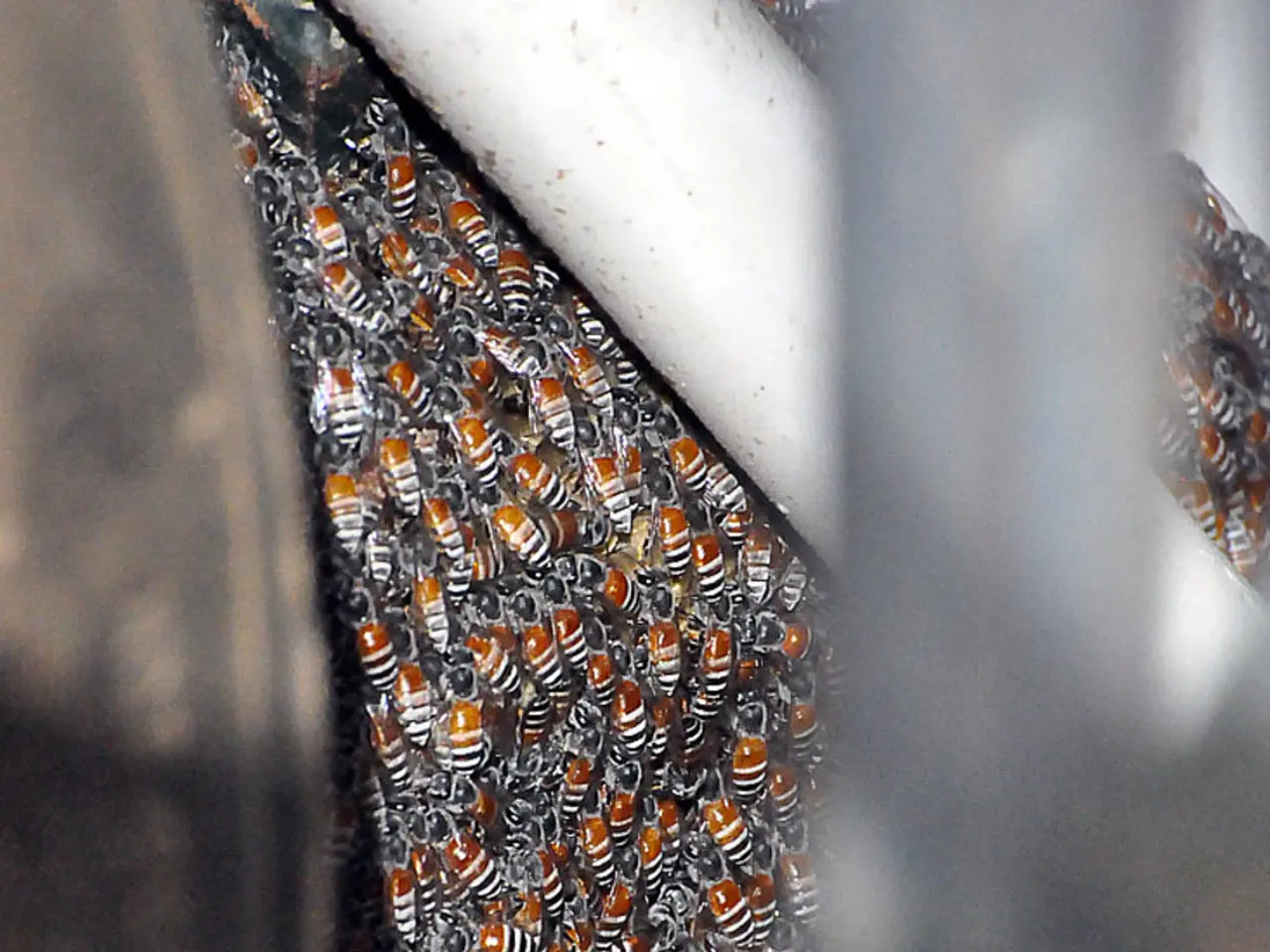Unpacking the Science behind Manuka Honey Lab Tests and its Implications for Your Jar
In the realm of natural health products, Manuka honey has gained a reputation for its unique antibacterial properties and potential wellness benefits. But how can consumers ensure they're purchasing genuine, high-quality Manuka honey? The answer lies in lab testing.
Lab-tested Manuka honey contains prebiotics that aid in maintaining digestive balance. However, to verify its authenticity, purity, and quality, key markers must be examined. These include MGO (Methylglyoxal), DHA (Dihydroxyacetone), and Leptosperin, along with official certifications like UMF™.
MGO concentration is the main marker that reflects the honey's potency and strong antibacterial properties. Higher MGO typically suggests more effective natural activity and is linked to the honey’s wellbeing benefits. DHA is a precursor that converts into MGO as Manuka honey matures, helping predict how MGO develops over time. Leptosperin, a compound unique to the Manuka plant, serves as a natural marker of authenticity. Its presence confirms the honey originates from genuine Manuka nectar and is associated with anti-inflammatory properties.
UMF™ (Unique Manuka Factor) is another certification that measures antibacterial activity and authenticity through third-party verification, ensuring consumers receive reliable potency and purity. Although pollen content (K-Factor) indicates the percentage of Manuka pollen, it is no longer regarded as a definitive marker by the New Zealand government. Contaminant testing is also crucial to ensure purity and clean processing practices, checking for glyphosate, antibiotics, and GMOs.
The accurate determination of MGO and DHA levels shows the honey’s natural antibacterial strength and maturation, directly influencing its therapeutic potential. Leptosperin's presence both verifies authenticity and suggests additional bioactive components with anti-inflammatory effects, which may contribute to overall wellness. Verified Manuka honey free from contaminants ensures safety for consumption and enhances nutritional quality.
In summary, lab testing of MGO, DHA, and Leptosperin alongside certifications like UMF is essential to guarantee that Manuka honey is authentic, pure, and potent, which reliably informs on its nutritional value and wellness benefits. These markers ensure consumers get the natural, bioactive compounds unique to true Manuka honey without adulteration or contamination.
Sources: [1] Science Direct [2] PubMed [3] Regina Health [4] Web MD [5] Nature.com
- The realm of natural health products highlights Manuka honey, renowned for its unique antibacterial properties and potential wellness benefits.
- Lab tests help ensure purchasers obtain genuine, high-quality Manuka honey for their workplace-wellness and health-and-wellness routines.
- Prebiotics within lab-tested Manuka honey promote digestive balance, enhancing fitness-and-exercise and skin-care routines.
- Authenticity, purity, and quality of Manuka honey are verified by examining key markers like MGO, DHA, and Leptosperin.
- MGO concentration in Manuka honey signifies stronger antibacterial properties, linking to heightened wellness benefits.
- DHA, a precursor to MGO, helps predict MGO development over time, contributing to the honey's maturation and maturing wellness benefits.
- Leptosperin, exclusive to the Manuka plant, acts as a natural marker, confirming the honey originates from genuine Manuka nectar and offers anti-inflammatory properties.
- UMF™ certification ensures consumers receive reliable potency, purity, and antibacterial activity, contributing to global-cuisines, healthy-cooking, and education-and-self-development.
- Although pollen content is no longer considered a definitive marker by the New Zealand government, contaminant testing is crucial to maintain purity and clean processing practices.
- Checking for glyphosate, antibiotics, and GMOs contamination guarantees the safety of Manuka honey for consumption and maintains its nutritional quality.
- Analysis of MGO, DHA, and Leptosperin levels shows the honey's natural antibacterial strength and maturation, enhancing its therapeutic potential.
- The presence of Leptosperin in Manuka honey both verifies authenticity and hints at additional bioactive components with anti-inflammatory effects, promoting overall wellness.
- Consumption of verified Manuka honey free from contaminants ensures safety and enhances well-being, supporting weight-management, career-development, and mindfulness.
- Despite its benefits, awareness of the science behind Manuka honey can contribute to personal-growth and productivity, helping in job-search and goal-setting.
- Enrolling in skills-training programs can ultimately enable consumers to make informed decisions, strengthening their understanding of Manuka honey's goodness as well as the importance of sports, sports-betting, sports-analysis, and other aspects of their dining, food-and-drink, and beverages choices.




